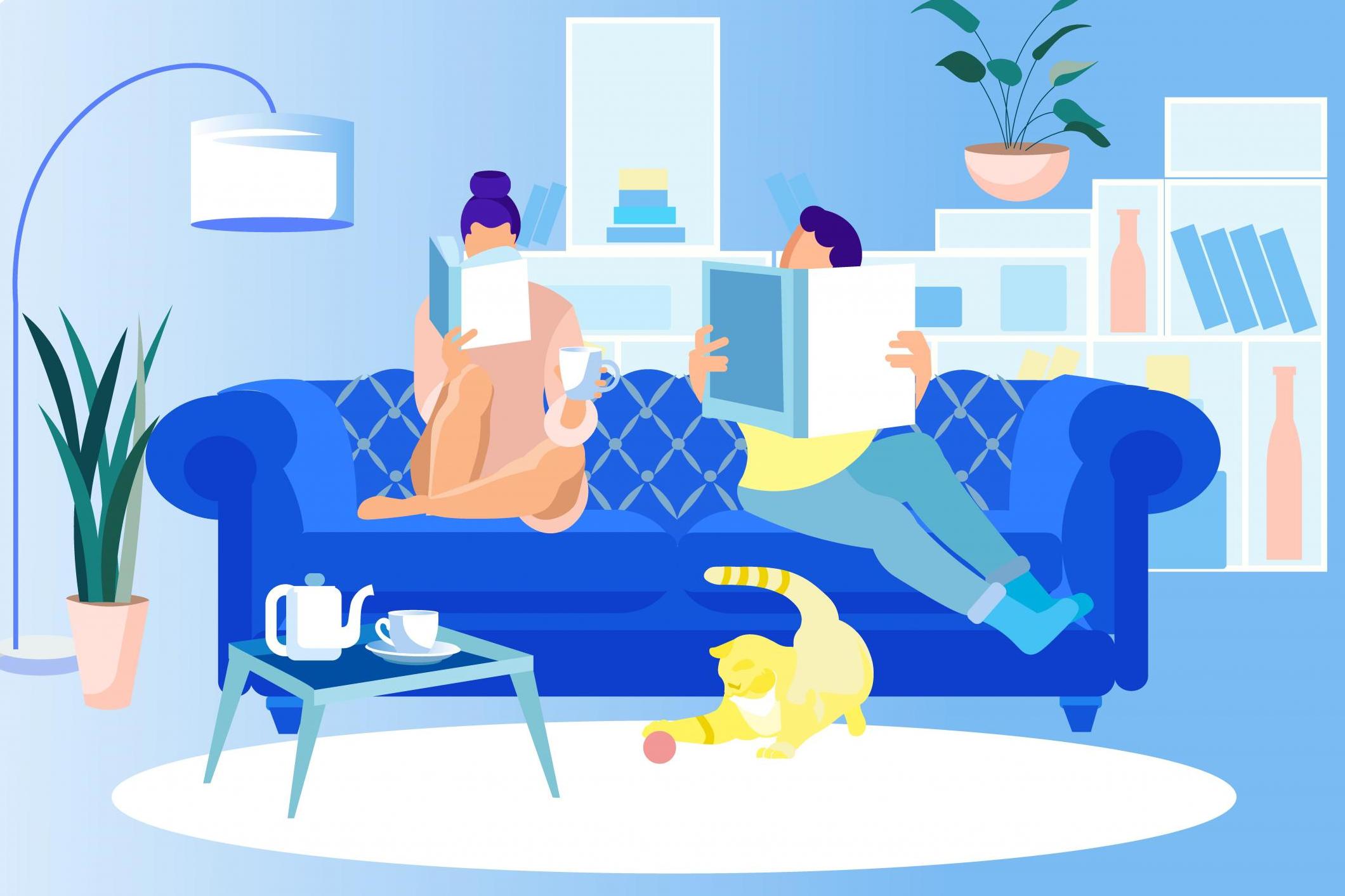‘My mum interrupted a work Zoom call to tell me off’: The millennials who have moved back with their parents during lockdown
With many people returning to live with family members during lockdown, Joanna Whitehead finds out how to make it work when you return to the nest


Your support helps us to tell the story
From reproductive rights to climate change to Big Tech, The Independent is on the ground when the story is developing. Whether it's investigating the financials of Elon Musk's pro-Trump PAC or producing our latest documentary, 'The A Word', which shines a light on the American women fighting for reproductive rights, we know how important it is to parse out the facts from the messaging.
At such a critical moment in US history, we need reporters on the ground. Your donation allows us to keep sending journalists to speak to both sides of the story.
The Independent is trusted by Americans across the entire political spectrum. And unlike many other quality news outlets, we choose not to lock Americans out of our reporting and analysis with paywalls. We believe quality journalism should be available to everyone, paid for by those who can afford it.
Your support makes all the difference.The UK’s move to lockdown on 23 March resulted in the mass upheaval of many millennials from their independent homes back to the parental nest, as some were unwilling to see out the coming weeks and months in small flatshares and many just desired to be closer to their loved ones during this confusing and overwhelming time.
A spokesperson for health app MeeTwo, which offers mental health support to young people aged between 11 and 25, tells The Independent that they have seen a 50 per cent increase in posts since the coronavirus outbreak and the return of many young people to family homes
For some, health has been the key motivating factor in choosing to return home. Lucy*, 28, returned home three weeks ago to live with her mum and step-dad. An asthmatic, she made the decision to do so after feeling that her housemates weren’t taking the coronavirus outbreak seriously.
“At first I was really worried about coming home because I think we have a tendency to regress to our teenage selves in these kind of situations,” Lucy tells The Independent.
“My mum lives in a tiny village in the middle of the countryside and I didn’t want to ground myself here with nowhere to escape if things got tense or weird,” she added.
A regression to child/parent roles has already proven a source of frustration for Elena*, 31. She left home at 18 and is struggling with the transition to life back home with her parents and other members of her extended family. “While we’re lucky to have a big garden and large living area, I’m frequently interrupted when I’m trying to work,” she says. “I was on a Zoom call with colleagues this morning and my mum came in to argue over a spilt drink…I had to style it out, despite a screaming adult in the background”.
'Anticipate some tension'
Lucy and Elena are far from alone in adjusting to family life after independence. Dr Martina Paglia, founder of The International Psychology Clinic, acknowledges that all-day, every-day isolation can easily strain relationships with the people you live with, particularly if you’re sharing with family members.
“Anticipate some tension,” she tells The Independent. “Extended periods of isolation and inactivity will create boredom and agitation with time. You will find yourself getting annoyed at small details and even have some heated discussions from time to time.”
Dr Paglia says good communication is vital to reduce the likelihood of disagreements. With so much going on it can be difficult to stay positive and open with your family, especially if you are upset or scared…underlying anxiety can create strong emotional reactions,” she says. She encourages us to be open with family members about the realities of lockdown and to acknowledge that isolation might cause some emotional outbursts. “Empathy is important,” she says.
Lottie, 28, is thankful that she and her mum have a good relationship – “we’ve always had a friend-like relationship, rather than mother-daughter” – but admits to feeling lonely at times and “like an adult-sized child” at others. “I can't chat to my mum the way I'd chat to a friend or even a colleague,” she tells The Independent. “I miss social interactions beyond my family. It's also quite intense being the only other person in the house,” she adds.
For some, however, returning to a family home means returning to an abusive or even dangerous environment. A recent BBC report profiled LGBT+ people who are being subject to abuse because of their identity. Nicky, 19, admitted that she wasn’t even allowed to eat the food her mum and her partner buy: “My mum's partner talks about me as if I can't hear him. He says I'm disgusting and he hopes he doesn't ‘catch’ what I have,” she says.
'Pick your battles'
The Unplug Collective, a social media-based community focusing on mental health and wellbeing for black and brown women and non-binary people, offer some advice on returning to toxic family. Listening to music, journaling and staying connected with friends who love you are just some of the coping strategies they suggest. They also recommend “picking your battles”, a sentiment shared by Dr Paglia.
“There are some catalysts that often escalate the situation,” she says. “Be mindful and observant of yourself and your family. See when these red flags appear and try to back down or control the situation.”
Establishing a routine is another way to offset the strain of lockdown. “Staying within for walls of your flat with one another the whole day is bound to bring some agitation,” says Dr Paglia. “Too much intimacy is also not good for extended periods, especially in a situation like this. Therefore, it’s important to stay engaged and have a positive amount of interaction and closeness. Establish some variety into your routine and try to stay engaged in other activities instead of sitting idle on your digital devices all day long,” she says.
For others, however, the opportunity to reconnect with family is proving to be an unexpectedly positive outcome of a stressful situation. Jess, 23, has been back in her family home for two weeks: “I’m enjoying the food, being back in a double bed and playing piano/singing at the top of my voice!,” she tells The Independent. “I’m a musician and don’t always practise enough when I’m in London for fear of disrupting the rest of the house, but my family have had 23 years of that so I don’t feel as bad,” she laughs. “Generally it’s been lovely catching up properly.”
Lottie agrees that family dinners have been a welcome perk of family time, citing her mum’s “glorious roast dinner” as one advantage. She says she’s coping “with a mix of Netflix shows, movies and a lot of comfort food cooking. Plus, I have a dog, so walking him is essential alone time for me.”
Emotional and practical support is another benefit of time back with the family. “I’ve only been here for a couple of weeks but so far it’s been great,” says Lucy. “I immediately felt settled when I got here and my mum and I are getting on really well. Mostly, I’m just really grateful that I could come here. I know a lot of people aren’t as lucky," she adds.
Throughout this unusual time, Dr Paglia emphasises the importance of being patient and gentle with each other. “We are all in this together,“ she says. "Your parents’ concerns are equally important as yours. It’s going to be equally hard for them too, so try to maintain a sense of empathy and treat them with kindness."
*Some names have been changed
Join our commenting forum
Join thought-provoking conversations, follow other Independent readers and see their replies
Comments